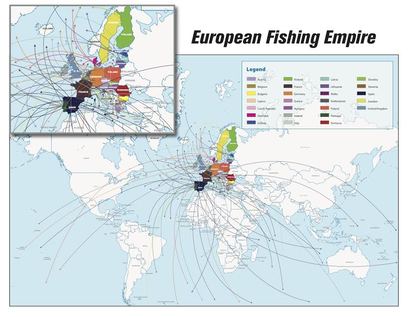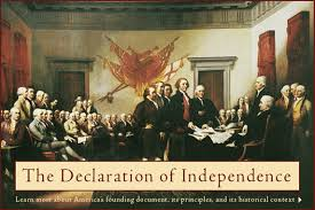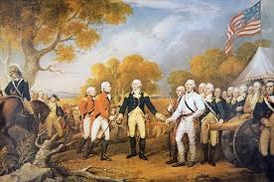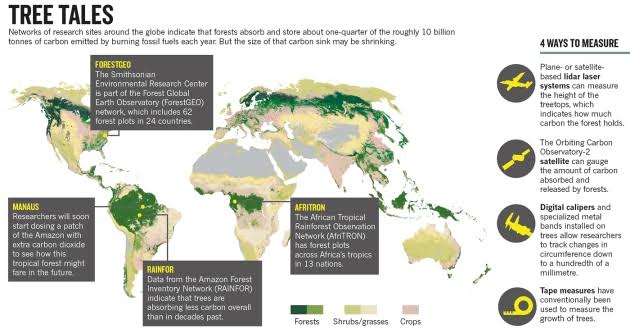 Researchers believe they have solved a mystery that scientists discovered in the 1990s regarding the carbon being emitted by humans into the atmosphere by burning fossil fuels. Three-quarters of the CO2 accumulating in the atmosphere and oceans was accountable and measured; however, the remainder supposedly was captured on land, but where was it going? The problem became known as the “missing sink,” according to a report in Nature Magazine.
The tree growth records are supported by CO2 measurements taken on tall towers at more than 20 sites in North America and Europe revealing that many forests are absorbing more CO2 than they are giving off.
The reason for this is trees require CO2 for photosynthesis and the atmospheric build-up of the gas fertilizes plants and trees making them grow faster. Warming a plant or tree with CO2 lengthens the growing seasons of trees of temperature dependent processes responsible for growth. An international team led by the US Forest Service researchers Yude Pan and Richard Birdsey “concluded that the world's trees had sequestered enough carbon during the period from 1990 to 2007 to account for the entire missing sink4. The hungriest carbon absorbers were the temperate forests, particularly areas where abandoned farmland had given way to young, fast-growing trees. High-latitude boreal forests ate up a smaller amount, and tropical forests, on balance, were not taking up carbon because tropical deforestation released about as much CO2 as forests were soaking up. The team projected that if deforestation was halted, Earth's forests could take up around half of the carbon emitted by human activity, which would substantially slow down global warming,” they said in the report. Is it possible to stop deforestation in time to slow global warming? Deforestation When forests are arbitrarily cleared they emit CO2 back into the atmosphere which is one of the worst repercussions of deforestation contributing to climate change. Deforestation accounts for 11 percent of global greenhouse gas emissions caused by humans. This is more than all the cars and trucks on earth. Estimates say as high as 50 percent of forests have been removed by unsystematic deforestation. Forests are being removed to provide grazing land for cattle, plant agriculture crops, and provide building wood for industry. There are practices in place, however, to control unfettered deforestation. There is a formal document issued by the United Nations called “Forest Principles” outlining acceptable practices; however, adherence to the principles of sustainable forest management is strictly voluntary by nations. Sustainable forest management Sustainable forestry is a practice of regulating forest resources to ensure a balance is maintained between supply and demand of plants and trees in terms of environmental, commercial and recreational in order to maintain viability. Selective logging is a method of selecting certain trees for removal while preserving the woodland ecosystem. This ensures the long-term preservation of tree stands and protects young trees from being harvested too soon. Some trees for the paper industry are grown under the rules of timberland management, which is the systematic land management of trees specifically harvested for paper. It takes 10-20 years for trees to grow large enough for harvesting. During that time they provide a habitat for plants and animals as well as adding oxygen to the earth’s atmosphere. Forest management is a formula where trees are harvested for a variety of reasons including improving the health of the forest; controlling the types of trees that grow on the site; attracting certain wildlife species; providing a source of income for the landowner; producing paper, lumber and numerous other forest products; and improving access to the area for hikers, hunters and other recreational users, according to Maine Forestry. Harvesting methods like clearcut, shelterwood, seed trees, group selection, and single tree selection are all methods used to both maintain and regenerate a forest stand of trees. Each method has its benefits, drawbacks and conditions under which it is the most suitable way to harvest trees. No one harvesting method is ideal for all situations. Since the mystery of the “missing sink” has for the most part been solved, research proving forests are adding biomass can be used to strengthen arguments for preserving forests as a method to slow global warming. Forest management is even more important, but also there needs to be reassessments of land use, as well as rethinking a diet focusing on meat and dairy as protein sources instead of plant-based diets. But that’s a different essay, and more controversial than saving trees. Still, there are statistics lending “plant-based” food for thought. The United Nations Food and Agriculture Organization issued a report citing the livestock sector generates greenhouse gas emissions as measured in CO2 equivalent at 18 percent. It is also a major source of land and water degradation. Resources Nature PNAS Conservation Maine Forestry
0 Comments
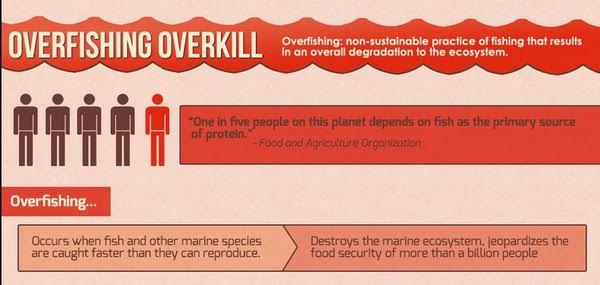 “There’s been no effective movement on fisheries management in the Mediterranean in the last decade”, says report author Nicholas Dulvy, a marine ecologist at Simon Fraser University in Burnaby, Canada, they said. The European Commission funded the report, and it is the first complete evaluation of the extinction risk of marine fish in the region. The report covered species native to the Mediterranean Sea, Black Sea, Baltic Sea, North Sea, and the European Atlantic Ocean region. While conservation methods have been successful for some species, others are endangered such as the Atlantic halibut, Atlantic salmon and turbot—numbering 90 species in all at risk. Japanese fishing in European waters has long history In 1986 the European Commission proposed limits on Japanese fishing in the waters off Madeira. The number of Japanese fishing vessels was reduced from 25 to 15 and the quantities of blue fin tuna was reduced from 240 tons to 120 tons. Reports in June 2015 show restrictions are effective. The Blue fin tuna in the Mediterranean and the Eastern Atlantic for the first time since a 2006 recovery plan went into effect show an increase in EU allowances to fish, which is due to the recovery of the stock by 20 percent. Catch limits are successful in establishing sustainable ocean fish stocks Unlike the Blue fin tuna, many species do not have catch limits like Mediterranean blue sharks, which is among the most exploited species in European waters. Spain is reported as the biggest exporter of shark fins and meat and a major player in the global fin trade, according to the report in Science Magazine. Implementation of fishing laws and restrictions slow to take effect The new Common Fisheries Policy (CFP) taking effect in January 2014 mandated the end of overfishing by requiring catch limits on all commercial species by 2020. In the foreword to the IUCN report, European Commission Director Pia Bucella writes that its findings will be “crucial” for informing the CFP and other marine policies. Some believe the 2020 target date is too slow and contributes to uncertainty in the industry and among conservationists. Greenhouse gas emission rates impact ocean fishing Oceans need an immediate and substantial reduction of anthropogenic greenhouse gas emissions. If that doesn't happen, there could be far-reaching and largely irreversible impacts on marine ecosystems, reported by Science Daily. A study published this month in the journal Science, the research team from the Ocean 2015 initiative assesses the latest findings on the risks that climate change poses for oceans and demonstrates how fundamentally marine ecosystems are likely to change if human beings continue to produce just as much greenhouse gases as before according to the report. Carbon dioxide concentration in the atmosphere has risen from 278 to 400 ppm (parts per million) -- a 40 percent increase that has produced massive changes in the oceans. "To date, the oceans have essentially been the planet's refrigerator and carbon dioxide storage locker. For instance, since the 1970s they've absorbed roughly 93 percent of the additional heat produced by the greenhouse effect, greatly helping to slow the warming of our planet," explains Prof Hans-Otto Pörtner, co-author of the new Ocean 2015 study and a researcher at the Alfred Wegener Institute, Helmholtz Centre for Polar and Marine Research, they said in the report. The study offers four key takeaway messages for the negotiators and decision-makers: 1. The oceans greatly influence the climate system and provide important services for humans. 2. The impacts of anthropogenic climate change on key marine and coastal species can already be seen today. Many of these plant and animal species will face significant risks in the decades to come, even if we succeed in capping carbon dioxide emissions. 3. We urgently need an immediate and substantial reduction of carbon dioxide emissions in order to avoid widespread and above all irrevocable harm to ocean ecosystems and the services they provide. 4. Fourth, as atmospheric CO2 increases, the available protection, adaptation and repair options for the ocean become fewer and less effective, and with them the odds that marine life forms can successfully adapt to these rapid changes. Efforts to save European ecosystems and fish stocks by restrictions and enforcement of mechanisms to ensure sustainable numbers in the future will be complicated and even jeopardized if carbon dioxide concentrations in the atmosphere continue to rise. Multidiscipline approaches to ocean conservation focusing on both fishing restrictions and reduction of greenhouse emissions will be needed to ensure preservation of fishing stocks. Resources Science Europe Europe press release http://ec.europa.eu/newsroom/mare/itemdetail.cfm?item_id=23400&subweb=343&lang=en http://www.sciencedaily.com/releases/2015/07/150703135248.htm
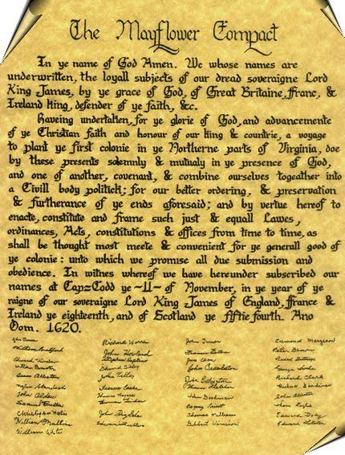 Before the charters, however, no independent governance or separation from the mother country was broached until those seeking religious freedom fled Britain to escape persecution. The only declarations were Lawes Divine, Morall and Martiall issued by the Virginia governor in 1610 and 1611 on the approval of London Virginia Company. They were the earliest extant English-language body of laws, but the laws only regulated conduct and did not provide for jury trials even though colonists were entitled to the “rights of Englishmen.” In fact, no legislature created the laws, and there was no court to enforce them. The Mayflower Compact in 1620 identified those seeking refuge in the New World as “Separatist” established early on they were severing ties with England—sort of. The first governing document setting forth the framework of Plymouth Colony was written by separatist Congregationalists who called themselves "Saints.” Later they were referred to as Pilgrims or Pilgrim Fathers. They were fleeing from religious persecution by King James of England. Haueing vndertaken, for ye glorie of God, and aduancemente of ye christian ^faith and honour of our king & countrie, a voyage to plant ye first colonie in ye Northerne parts of Virginia· The 41 signers of the compact while establishing themselves as separatist said they were planting a colony, which can be interpreted as an extension of the English realm leading to the duality of the settlers’ “nationalism” and loyalty to Britain. The adoption of English common law by colonists is outlined in a document discovered in Charlton, Georgia in State v. Campbell (1801). The remark states “When the American Colonies were first settled by our ancestors it was held, as well by the settlers…that they brought hither as a birthright and inheritance so much of the common law as was applicable to local situation, and change of circumstances.” British loyalists took refuge in the prestige of authority, of the venerable power which time and custom seemed to sanctify. They appealed to the loyalty of being an English subject. Warning of the dangers that came with innovation and modernity, Loyalists denounced the ambition of the patriot leaders and reminded the people of the power of Great Britain -- a power to save or to destroy. Additionally, “…English subjects, as the law is the birthright of every subject, so wherever they go they carry their laws with them, therefore, such new-found country is governed by the laws of England….” The strongest legal bonds between England and the American colonies lay in the colonial charters, many of which guaranteed residents in the colonies would eventually become “Our Loving subjects and live under Our Allegiance.” Ambiguity, however, in the colonial charters created uncertainty as to whether the authority to naturalize alien resident colonists resided within the colonies themselves or emanated directly from Parliament in London. Legislative bodies from both locations ultimately issued separate and sometimes conflicting naturalization laws, the interaction of which influenced early patterns of non-English immigration to the American colonies, and ultimately fomenting the impulse to seek independence from England. The peculiarities of emigration involving laws, citizenship, autonomy, social justice, civil rights and independence created contrariety and uncertainty among the colonies towards England —not dissimilar from some countries currently dealing with immigrants, refugees and displaced persons seeking asylum for a variety of reasons. “English common law was less clear on the status of alien residents in the colonies, who generally faced a difficult naturalization process to obtain the same legal rights inherent to natural-born English and their descendants. Issues in early naturalization policy stemmed from the legal relationships between England and its colonies,” according to James H. Kettner in “The Development of American Citizenship (1608-1870). “Taxation without Representation” was the cry and the culmination of years of discontent and alienation of colonists. And as stated in Part I, British resources were being stretched and new sources of revenue were needed. The Stamp Act of 1765 was a tax on paper for all American colonists and required them to pay a tax on every piece of printed paper they used. Ship's papers, legal documents, licenses, newspapers, other publications, and even playing cards were taxed. Granted the tax was destined to protect and defend the American Frontier; still, colonists were not involved in the decision. 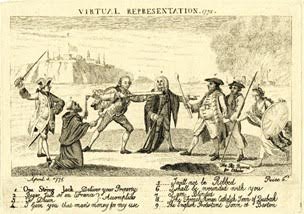 Virtual representation Virtual representation Did the colonists really want to be represented in English the parliament, or were equality and sovereignty leading the charge for liberty? Colonists were not satisfied with what was called “virtual representation” that fanned the flames of discontent. This type of representation cited by the members of parliament, including the Lords and Crown in Parliament, was the right to speak for the interests of all British subjects, no matter where they lived. Considering the oddness and unequal application of the naturalization processes, representation might not have included all colonists, which contributed to discontent. The First Continental Congress in the colonies sent an olive branch petition to parliament requesting representation. Parliament replied that virtual representation was the only option, and the colonies rejected the premise. Revolt was inevitable. The American Revolution reflected an emerging philosophy that human beings are not only intellectually in charge of their own lives and future personally, but also the creators of laws governing their persons, property and country. The Declaration of Independence opens with an explanation of the desire for sovereignty by dissolving “the Political Bonds [England] which have connected them,” furthermore demanding, “separate and equal Station to which the Laws of Nature and Nature’s God entitle them.” The American Revolution was the political consequence of systemic inequality and oppression writ large in the colonies with roots going back to the first settlers. The French political thinker and historian Alexis de Tocqueville writes in “Democracy in America,” “Equality will find its way.” Furthermore, “To conceive of men remaining forever unequal…is impossible; they must come in the end to be equal upon all.” As Americans observe this 4th of July, we celebrate advancing culturally towards equality in many ways, but economic inequality remains one of the chief challenges of this century. Most Americans income growth was only 3.3 percent since 2013, while the richest 1 percent grew by 10.8 percent. By 2014, families recovered only 40 percent of what they lost during the Great Recession. Tocqueville’s prophecy that equality finds its way reaches out to the 21st century, for Americans will be seeking pathfinders now and in a future who lead with intention and dignity towards prosperity and equality for all. Resources Scholarship law History Illinois Mayflower history History Think Progress “Democracy In America,” by Alexis de Tocqueville. Penguin Books Limited 1956, pg. 54-56.
 American loyalists to King George American loyalists to King George The conflict was the synthesis of emerging optimism respecting the possibility that reason can control human life. Cogito ergo sum. I think, therefore I am. The 18th century Enlightenment was the culmination of ideas born before and mainly in the 17th century with John Locke, Thomas Hobbes et al when philosophical thought expanded and advanced into a social contract, instead of religious dogma as central to the formulation of policies and laws. It’s a doctrine arguing the right of people to change conditions of obligation and dependency. A social contract is not unilateral; rather, there are obligations on all sides. Failure to fulfill the social contract, it becomes incumbent upon human beings (archaic language uses “men”) to alter and reconstitute the contract. To best describe both the English and American perspective, this writer will refer to Professor Stanley Weintraub historian, biographer and author of “Iron Tears: America's Battle for Freedom, Britain's Quagmire, 1775-1783." Perspectives will be gathered from various sources including book reviews and an interview on NPR with Professor Weintraub and historical references. One perspective observed that the American Revolution was Britain’s Vietnam mainly because the cost in treasure and lives did not achieve victory—the kind of victory King George III wanted, which was subjugation of the colonies as dependent and indebted to the crown. Did the Americans win the war, or did the British fail to gather the home support to defeat the colonists? King George perceived the colonists as traitors to the crown, but parliament did not totally share his enthusiasm. By 1780 the war was taking its toll and becoming ever more costly, and the British hired foreign mercenaries in some cases to fight who ultimately deserted. Additionally, some American loyalists to the crown were not that loyal and decided against turning their coats to red. On the home front taxes were rising and foreign trade was diminishing, which resulted in increased unemployment. Clearly all was not copacetic in parliament and blame was in the offing. The war was perceived in both houses of parliament as unwinnable for a host of reasons.  British linear battle tactic British linear battle tactic One of the reasons was the tremendous number of casualties suffered by the British as they attempted to fight against a new kind of warfare: guerilla warfare. American militias called minutemen were ever ready to respond whenever brightly red-coated British regulars, who marched across the battlefield in linear formation assembled themselves as easy targets. Colonists trained in rapid loading and firing proved superior to the British who were armed with inaccurate smoothbore muskets. Baron Friedrich von Steuben joined George Washington’s regulars rewrote the British manual of arms and created a new manual and drilled the Continental forces relentlessly. They learned to load and fire four rounds a minute under his direction improving battlefield success and maneuverability. To picture this rapid fire method, Brits might know of the BBC TV series “Sharpe’s Rifles” where then Sergeant Sharpe teaches his brigade of “95th Rifles” in one episode to load and fire four rounds a minute. It takes skill and a lot of practice. By the end of the Napoleonic wars (1799-1815), Sharpe became Lieutenant-Colonel as a reward for his unit’s valor. No doubt, the British had learned about rapid-fire from their skirmish across the pond a few decades before challenging Napoleon. Historically losing wars waged abroad does not garner support in the home country, and maintaining support for the war becomes increasing difficult as the US experienced in Vietnam and more recently Afghanistan. The British people did not have an appetite for continuing a costly war with the colonists. When the French entered the war after British General Burgoyne’s capitulation (surrender), the English/American war became international with old enemies taking the opportunity to fight England, further alienating an already war-weary British population. France, Spain and the Netherlands, felt sufficiently encouraged to support the American rebels, contributing soldiers, ships and, in the case of the Dutch, almost unlimited funding to the cause. International efforts reached a peak in 1781, when Cornwallis was trapped at Yorktown called the Franco-American victory. It was a French fleet that prevented supplies reaching Cornwallis, and the army that besieged him, though led by Washington, consisted of mainly French troops. Wars are waged and fought from the home front as much as on the battlefield in democratic-leaning countries. Without ideological support of the civilian population, securing economic support and impetus to send loved ones into harm’s way is an exercise in futility and doomed to fail. Part 2 American perspective Friday July 3, 2015 Resources NPR Stanely Weintraub at Amazon - an American writer History Foundation America |
Dava Castillo
is retired and lives in Clearlake, California. She has three grown
children and one grandson and a Bachelor’s degree in Health Services
Administration from St. Mary’s College in Moraga California. On the
home front Dava enjoys time with her family, reading, gardening, cooking
and sewing. Archives
November 2015
|
